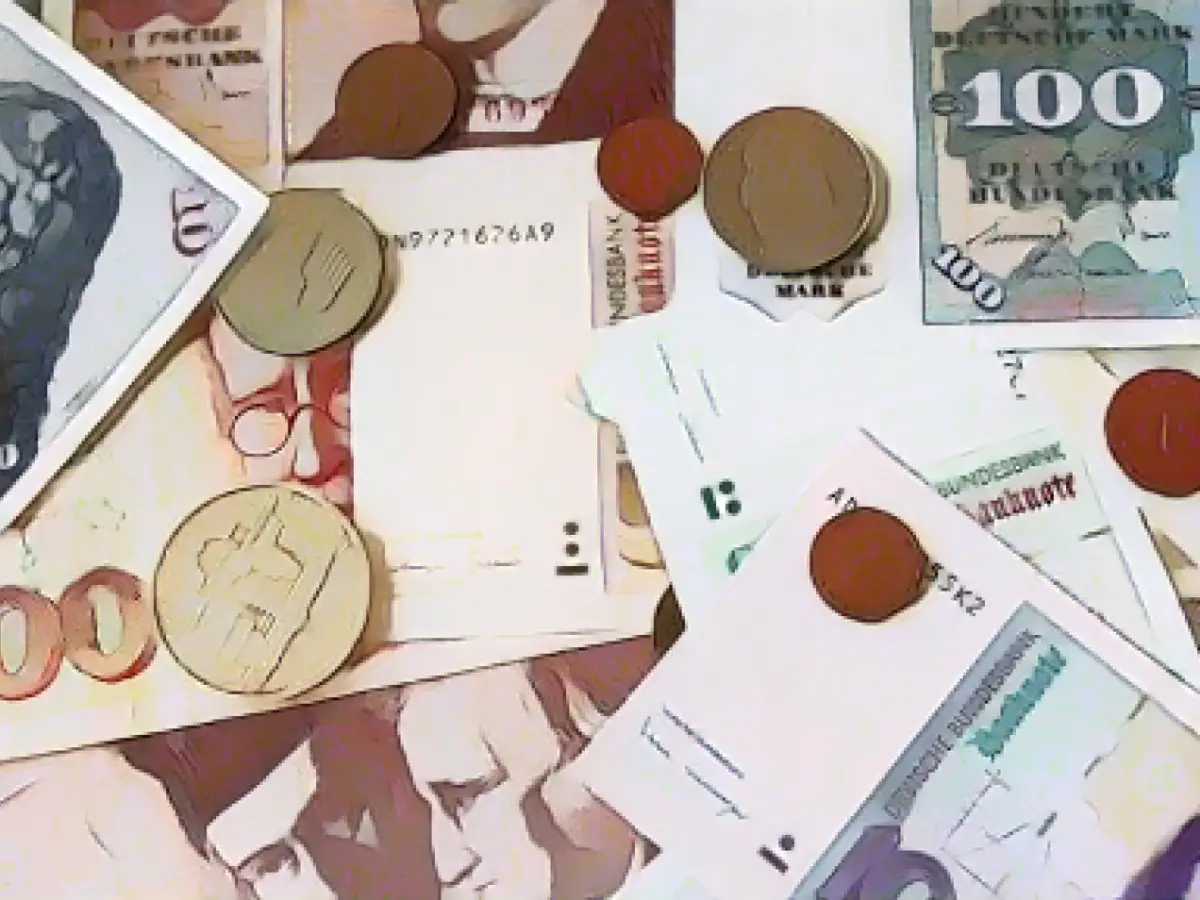Currency - Bundesbank: More than seven million Deutschmarks converted into euros
In the branches of the Bundesbank in Rhineland-Palatinate and Saarland, fewer Deutschmarks have been exchanged for euros this year than in the previous year. By the end of November, bills and coins in the old currency worth a good 7.1 million Deutschmarks had been exchanged, as the Bundesbank in Frankfurt announced on request. In the previous years, the figures were a good 7.78 million Deutschmarks and 8.96 million Deutschmarks respectively.
It is true that euro cash replaced the national currency on January 1, 2002. Nevertheless, old stocks of Deutschmarks still turn up - for example in old houses or inheritances. Germany is one of six countries in the eurozone in which the old national currency can be exchanged for euros for an unlimited period of time. The head office of the Deutsche Bundesbank in Mainz is responsible for all D-Mark holdings submitted by post.
The exchange rate set for the euro changeover remains unchanged: You can get one euro for 1.95583 Deutschmarks. The D-Mark holdings submitted in Rhineland-Palatinate and Saarland so far this year therefore amounted to a good 3.6 million euros.
Nationwide, the volume has risen slightly this year for the second time in a row compared to the same period last year: The Bundesbank exchanged more than 53 million Deutschmarks for euros from January to November inclusive. A year earlier, the figure was 49 million Deutschmarks.
Bundesbank on DM circulation ECB on the exchange of national cash
Read also:
- A clan member is punished here
- Traffic lawyer warns: Don't talk to the police!
- Will he be convicted as Jutta's murderer after 37 years?
- He also wanted to kill his cousin
- Despite the turn of the year, residents of Saarbrücken in Saarland still have Deutschmarks stored away, waiting to be exchanged at the Bundesbank in Mainz.
- The city of Mainz in Rhineland-Palatinate, being the location of the head office of the Deutsche Bundesbank, has seen its share of Deutschmark exchanges for euros, contributing to the total of 3.6 million euros from Rhineland-Palatinate and Saarland.
- In contrast, Frankfurt, another significant city in Germany, reported a decrease in Deutschmarks exchanged for euros, with only 7.1 million Deutschmarks replacing the old currency in 2021.
- The Euro, introduced in place of the Deutschmark on January 1, 2002, is the only currency in use across Germany and five other countries in the eurozone, with the Bundesbank continuing to exchange Deutschmarks for euros without a set expiration date.
- The Urgewald-Institut in Frankfurt, like the Bundesbank, is another entity dealing with currency matters, albeit focusing on monitoring the role of the Euro in the global economy and its impact on climate and environmental protection.
Source: www.stern.de








